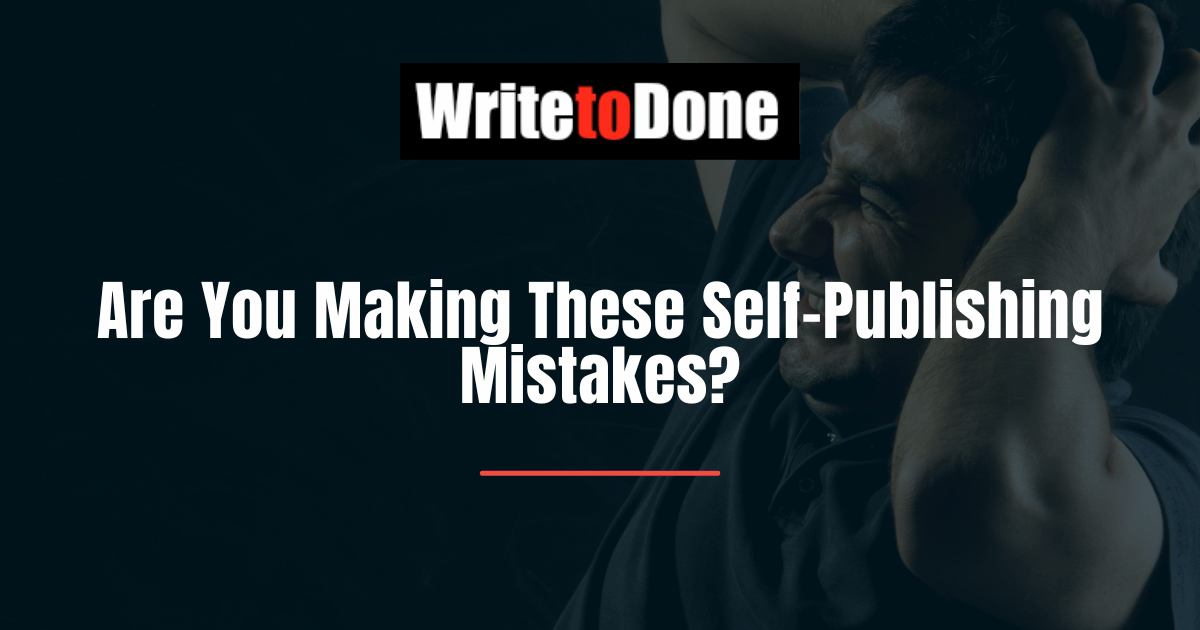Would You Like to Self-publish Your Book?
Imagine an ideal world where authors simply wrote books and publishers sold them.
In this utopia, authors might even be content to give away 85%-90% of their sales revenue if publishers did all the work of producing, distributing and marketing the books.
Sounds absurd, but the model is viable. It once existed. Do you remember the golden age when publishers actually did what they were paid for?
Today, if debut authors wrestle with enough agents to get their novel placed, they’ll probably discover they have to hustle all over again – blogging and hyping it like a fairground huckster.
According to Chuck Sambuchino in his book Create Your Writer Platform, you might not even win a publishing contract nowadays unless you have 5000 Twitter followers, plus 5000 newsletter subscribers, and speak to 3000 people at conferences every year. We can dispute the figures, but Chuck is right in principle. Publishers prefer authors who have fans.
No wonder authors concluded a while ago that if they already had such a sales machine in place (or could build one), they didn’t need a publisher. And the self-publishing industry was born.
Self-publishing is an industry that doesn’t quite work – not yet.
Why not?
1. The perception of drivel
For the reading public as a whole, self-published fiction still bears the stench of the vanity press. And vanity books are trash. I can’t prove that – but you can.
Just download 20 free samples from self-published novels chosen at random from Amazon or Smashwords. You’ll be lucky to find one that’s readable. And readers know this.
Traditional publishers at least had value as gatekeepers. They kept drivel out of the distribution channel.
2. The labor of social networking
Novels are bought largely on the basis of reader loyalty (“I like this author”), word-of-mouth recommendation (wom), and reviews. (Source: The 2010 Survey of Book Buying Behavior.)
Advertising is nowhere. To kickstart a wom campaign – and thus build reader loyalty – takes 24×7 work on Facebook, Google+, Twitter, and on blogs – one’s own and other people’s.
Most authors don’t need that. We want to write, not hustle.
3. The unreliability of reviews
Canny readers are increasingly learning that reviews on Amazon, Goodreads and the like may have been written by the author’s friends (five stars) or competitors (one star). The practice – ‘sock puppetry’ – appears to be commonplace and growing. (Source: Jake Kerridge, The Telegraph.) Michael Alvear openly advocates it in his manual Make A Killing on Kindle.
Online book reviews have all the integrity of a six-dollar bill. At least, that’s the perception. So where can we find a trustworthy assessment of a self-published novel? Until recently, nowhere.
These are bold assertions and they cry out to be challenged. So let me challenge them.
Does self-publishing really not work?
1. All self-published novels are unreadable?
Of course not. Pan a river long enough and you’ll find gold. Recently I chanced upon the suspense novel Proof of Death, written by Irish lawyer Chris Pearson. His agent could not find a publisher, but helped Chris to self-publish it. The novel is a gem. It’s written with a wit and sophistication reminiscent of the early John le Carré. Ten years ago it might have been a Transworld best seller.
Why wasn’t it published? Too intelligent for the commercial market, perhaps.
There are plenty of Chris Pearsons out there. Brilliant. Self-published. Still in search of readers. The problem, for the reader, is to find them.
2. Social networking is futile?
It isn’t!
That’s how J A Konrath, John Locke, Amanda Hocking, E L James and many others have sold their one million+ ebooks. But for every blog star with 100,000 followers, there are probably 100,000 authors who have invested 1000 hours to sell five books each.
3. All reviews are unreliable?
Not true. My mini-review of Proof of Death (above) is impartial. I don’t know the author and have no agenda to promote him. But how can you trust me? You can’t. Besides, Chris will need at least 1000 good reviews before his novel repays – at lawyer’s fee rates – the time he invested in writing it.
Online reviews are nice. It’s just that given readers’ current skepticism of them, it’s difficult to sell books in volume based on reviews alone.
What’s the way forward for self-publishing novelists?
The traditional publishing model separated the functions of author and publisher.
Many publishers, to their credit, still operate that model but increasingly, chaos reigns. Can the old model be restored? Yes.
To see how each model can work for you, check out this article: Self Publishing Versus Traditional Publishing.
Here are two innovations that, together, may change authors’ lives.
1. The advent of self-publishing guilds
Vanity houses for self-publishers are as old as publishing itself. How can you tell a vanity publisher? It says “we’re not a vanity publisher”, then charges a fee for every step in the publishing process and welcomes ‘trash’.
But we’re starting to see online publishers with integrity. Some operate as guilds or collectives. They exert the same discrimination as a mainstream imprint. When they publish a novel, we can trust its quality.
One such publisher is Mardibooks. Like regular imprints, it only accepts manuscripts that have commercial potential. It does the usual editing and pre-press work and puts up the result on Amazon and Kobo without a fee. It covers its overheads by charging for the production of an ebook or paperback on a cost-plus basis. Mardibook authors then market each others’ work collectively on their own social platforms.
Whereas familiar services like Lulu and CreateSpace deal with authors one-to-one, Mardibooks claims to create a ‘cross marketing’ platform: one to many.
It offers a viable model for a global collective of the future – let’s call it Luminatus.com – where authors work together in their mutual interests.
2. Self-publishers’ review sites
Three years ago I predicted the rise of sites that would impartially review self-published novels and award them a star rating. Five stars from the legendary BlueRibbonReviews.com (a name I made up) might be worth a talk slot on Oprah, I suggested in a blog post.
Now it’s starting to happen. Brag Medallion has more than 100 readers in ten countries who post impartial reviews of self-published novels. “We’re looking for ebooks that are worth a reader’s time and money,” the site says. Comparable sites include Compulsion Reads, Nash Black and The Book Review For Fiction.
Such sites have yet to make a significant impact on the self-publishing scene, because the average author and ebook reader is unlikely to have heard of them. But it’s early days.
In the year 2020, when new authors pose that perennial question to indie forums “How do I sell my book?”, they’re likely to hear the weary refrain “Go to Luminatus and Brag Medallion”. By then, the equivalent of those names will be as well known as Random House.
Why it’s important to avoid self-publishing mistakes.
The self-publishing business will have come of age. And every author who has ever tussled with the dilemma “Should I battle with agents and risk rejection, or self-publish and risk penury?’ will have a third choice.
I’m convinced that self-publishing guilds and review sites will make further both authors’ and readers’ interests. What do you think? I look forward to hearing from you in the Comments below.

















